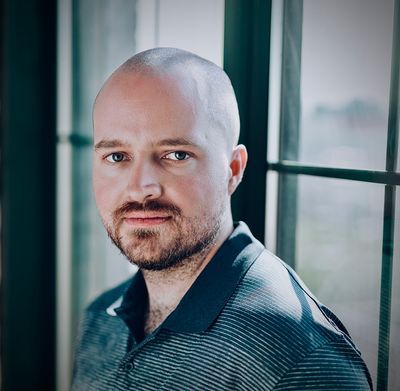Lately, I’ve been thinking about what it means to be generous.
Partly because defaulting to generosity is one of my guiding principles on Ungated. That’s how I want to show up in the world.
But thanks to some incisive coaching and soul searching, I’ve also come to realize that, historically, my relationship with generosity has been a bit… toxic.
So I want to disentangle the paradox of how generosity can be both virtue and vice, nourishment and parasite.
I also want to draw a line in the sand, and share how I’m approaching generosity going forward, so that I don’t fall back into my old traps.
In my first business, I used generosity as a cover for issues with my self-worth.
I gave as much as I could, usually with no way to reciprocate, because I didn’t feel worthy of people’s time, respect, and certainly not their money.
I gave because I thought that’s what would finally lead to me feeling like enough. “Maybe if I give more, I won’t feel like such a fraud. Maybe the imposter voice, the “you’re never good enough” voice, will quiet down.”
In other words, this flavor of generosity wasn’t about other people. It was about me, and my insecurity.
I gave not because I wanted to be of genuine service to my peeps, but because I wanted them to change their perception of me, and in turn, help me change my perception of myself.
Oof.
This won’t come as a surprise, but none of this worked. That style of generosity left me feeling empty and resentful. Instead of helping me feel more confident and whole, it did the opposite.
But I’ve come to realize that wasn’t true generosity. It was psychological pathology in disguise. I tricked myself into thinking I was being generous, when in reality I was hiding.
So it goes.
To be honest, I’m still figuring out what generosity means, and how it can be a nurturing, mutually beneficial force in the world.
But I suspect that true, healthy generosity lives at the intersection of self-worth and empathetic understanding. It’s when you’re in a healthy relationship with yourself, then act in a way that’s of genuine service to others.
No ulterior motive. No manipulation. No “if this, then that” games with your identity, status, or self-worth.
True generosity is giving to others not because you need to, but because you want to.
It’s having confidence in your abilities and gifts, and sharing them with people who can truly benefit.
So what does all of this look like in practice? How am I seeding this concept throughout the world I’m building?
Here are a few ways I’m trying to be more generous on Ungated.
Generosity doesn’t mean giving everything away for free.
This is a weird place to start, given my recent transition to the Gift Economy. But I’ve come to believe that generosity and money, while related, are distinct concepts.
Sometimes the most generous thing you can do is charge for your work. If you value yourself, and want others to value your work and use it to transform, charging can be mutually beneficial.
That’s why I’m keeping long-term coaching behind a hard paywall, and charging more than I ever have. Because that’s the most generous container for both me and my clients, where we both win.
Generosity isn’t about providing “more.”
In the past, I piled as much information into my articles and courses as humanly possible. I thought it was generous.
I’ve also taken a good number of courses that live by that philosophy, with 10 modules, packed to the brim with 90-minute videos, along loads of resources and bonuses and so on.
Please, for the love of all that is holy, let’s all stop doing this.
Time and attention are non-renewable resources. The most generous thing we can do is to give our people less, but better.
Generosity means optimizing for transformation, not information.
There’s a Derek Sivers quote along the lines of “If information was the answer, we’d all be millionaires with six-pack abs.”
It’s so easy to fall into the trap of thinking that more information is a cure-all. But often, what prevents us from getting what we want in life isn’t a lack of information. It’s some sort of conflict with our values and beliefs. It’s learning how to navigate and change our internal stories about ourselves and the world around us.
That’s why I’m writing pieces like this one instead of “the 10 step guide to amazing email marketing” or whatever. Because over the past 18 months, I’ve undergone my own psychological transformation. And not coincidentally, those inner shifts are making it far easier to get what I want in business, health, finances, etc. Go figure.
So yeah, I don’t want to play the information game anymore. In a world overflowing with information, it’s not generous.
Instead, I want to share the things that have helped me transform and grow in meaningful ways. I’m building the resource that I would have killed for a year or two ago.
Generosity means being radically honest about my own journey, even when it’s hard and uncertain.
The trend of building in public is great. But far too often, it’s just glorified PR. When things are going well, people love being an open book. But when things are tough and uncertain and scary, it’s a lot harder to share. And most people don’t.
But ultimately, it’s those moments of struggle, and how we respond to them, that define whether we’ll get where we want, or stay trapped in the same old patterns.
One of the things that can help us navigate our own moments of struggle, is having examples of other people who’ve fought through it, and come out stronger.
So for me, being generous means sharing the scary, messy shit. It means opening up, not just when things are going well, but especially when they’re not.
Generosity means helping people navigate the world based on their own values and priorities, instead of forcing mine.
One of the things that bugs me about online education is that everyone’s so damn certain that their way is the best way. That they have all the answers, and anything else is heresy.
Having bought into other people’s “bulletproof systems,” only to realize they don’t align with my values, I don’t want to play that game anymore.
For me, it’s no longer generous to assume I have the best answer for you. What is generous, however, is starting from the belief that you’re a distinct individual, with your own unique blend of values, priorities, and worldviews.
That’s why, in my writing and courses, I won’t presume to have all of the perfect answers for you.
I’m no longer in the business of selling treasure maps to desired results. Instead, I create compasses that help people navigate towards a treasure that may look nothing like mine.
Lastly, generosity means giving a middle finger to perfectionism.
I have a nasty habit of overthinking, overcomplicating, and over-compensating for my insecurities. In other words, I’ve got some hardcore perfectionism running through my veins.
The result is that I ship far less often than I want to.
Which is sad, because I’ve got this vast world of strategy and tools in my mind and my PKM system. And I know this stuff would be useful and insightful for the creators I serve. But when it comes to sharing it, I often just don’t.
But it’s a disservice to my people when I’m a perfectionist. I’m tired of holding back on stuff that might just change someone’s life, all because I’m scared, and I want to protect my ego. That ain’t gonna fly anymore.
From here on out, being generous means being an imperfectionist. It means shipping fast and iterating. It means letting go of the need to be perceived as smart and perfect. Because I’m not. I’m just a guy who’s growing and learning and trying his best, just like everyone else.
So yeah, that’s all I’ve got. I’m not really sure how to end this post, other than by saying, let’s go be generous, y’all. But not, like, in an unhelpful way.





